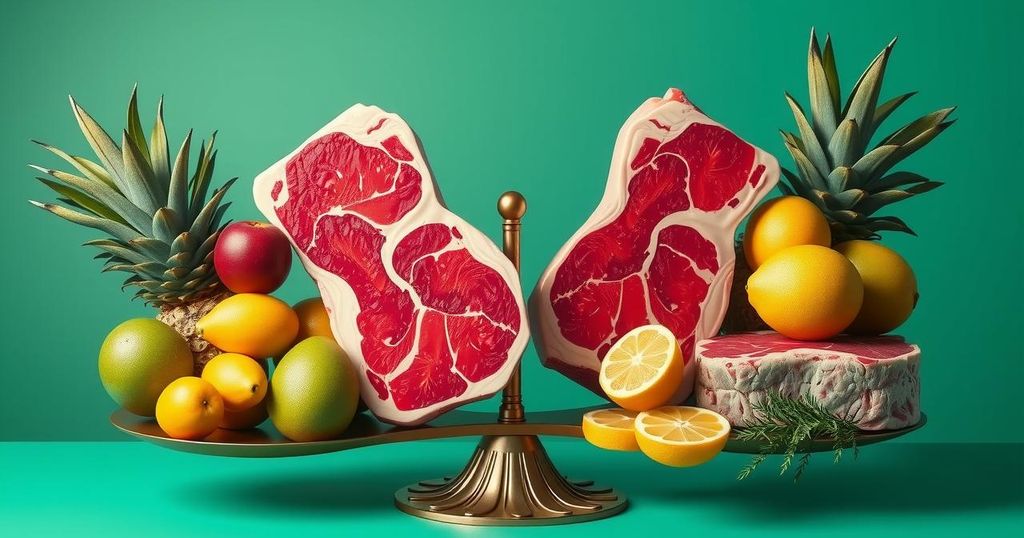World news
AFRICA, ASIA, BO, BRAZIL, CHINA, EUROPE/ASIA, HOUSE, INDIA, IRAN, JAI, JAIR BOSONARO, MEXICO, MONEY LAUNDERING, NATIONAL SECURITY, NORTH AMERICA, POLITICO, POLITICS, R - CALF USA, RIO DE JANEIRO, RUSSIA, SOUTH AFRICA, SOUTH AMERICA, SUPREME COURT, TRADE RELATIONS, TRUMP, U. S, UNITED STATES, WHITE HOUSE, WILBUR ROSS
Amira Khan
0 Comments
Trump Announces New 50 Percent Tariff on Brazilian Goods
- President Trump has announced a 50 percent tariff on Brazilian goods starting August 1, 2025.
- The announcement comes amid frustrations over Brazil’s treatment of former president Jair Bolsonaro.
- Trump’s letter attributes the tariff to Brazil’s censorship practices against U.S. social media companies.
- This represents a big jump from the previous 10 percent tariff imposed by Trump in April.
- Former commerce secretary Wilbur Ross suggests that Trump’s approach is not without precedent.
- Critics express concerns that such tariffs blur the lines of international diplomacy.
- R-CALF USA supports Trump’s new tariff, viewing it as a necessary defense of domestic agriculture.
Trump’s Announcement of the 50 Percent Tariff
President Trump has taken a bold move by announcing a hefty 50 percent tariff on Brazilian goods, which is set to start on August 1, 2025. This decision has caught a lot of attention, particularly because it appears to hinge on America’s current relationship with Brazil. Notably, Trump expressed his discontent with how Brazilian officials treated former president Jair Bolsonaro, highlighting a complicated web of international diplomacy and trade relations.
Reasons Behind the Increased Tariff Rate
In a letter addressed to the Brazilian President, Trump cited Brazil’s recent actions against free elections and American free speech rights. He specifically pointed to the Brazilian Supreme Court’s issuance of numerous secret censorship orders against U.S. social media platforms, which he claims threatens these companies with massive fines. This has clearly marked an escalation from the 10 percent tariff that Trump had imposed earlier in April, suggesting a new chapter in U.S.-Brazilian trade relations.
Potential Implications of Tariff Changes
Interestingly, sources indicate that alternatives to punish Brazil, such as sanctions, were deemed too complicated for the White House. In light of this, some analysts speculate that the expiration of tariff policies could provoke Brazil to increase its influence over the coalition of emerging economies involving China, Russia, and India, which has publicly criticized U.S. military actions. Critics argue that such tariffs reflect an unusual intervention into the internal politics of another nation, while former commerce secretary Wilbur Ross noted their resemblance to Trump’s earlier tariff threats regarding fentanyl. Some legal challenges may arise surrounding these tariff changes, but history shows that past court decisions have often favored Trump.
In summary, President Trump has announced a dramatic increase in tariffs on Brazilian goods, highlighting ongoing tensions between the two nations. The letter he sent outlines significant concerns regarding Brazil’s treatment of Free Speech rights and the allegations of censorship aimed at U.S. companies. As this tariffs saga unfolds, it will be critical to see how such actions might influence further diplomatic relations and the broader implications for international trade. In a sense, Trump’s proposed measures serve as a strong reminder of how economic pressures can be leveraged in political situations, leaving many to wonder what will happen next.




Post Comment